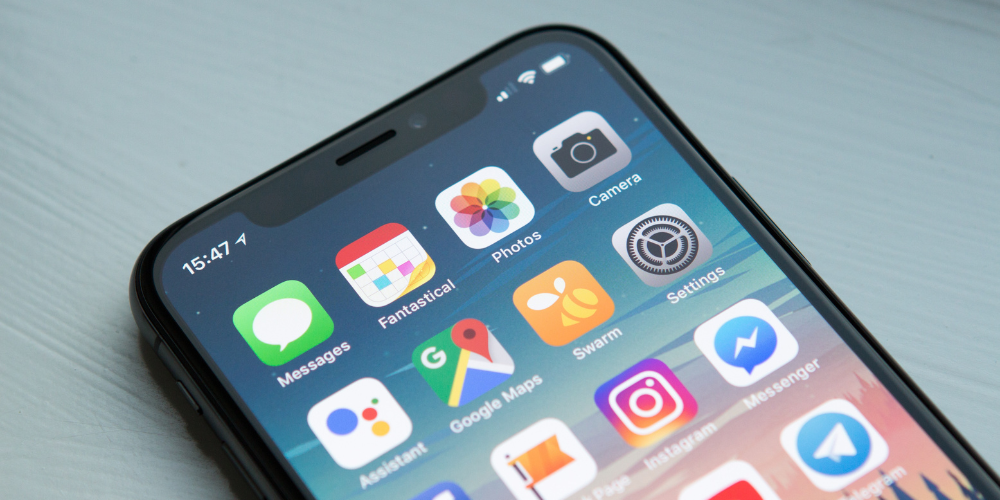Nowadays, for various reasons such as job opportunities, travel, and globalization itself, many people must speak a second language. Are you one of those people taking a course but still struggling to learn quickly or needing to find a way to speed up your process? I understand! My first language is Portuguese and I had to accelerate my English learning process to come study in Canada.
I’ll share with you the main lessons and tips I used to learn a new language quickly. Even though I am fluent in two more languages now, I am still in constant learning. Therefore, everything I will talk about here is still in practice.
- 3 Fundamental Lessons for Learning a New Language
- Tips to Learn a Language Quickly
- Change your phone's language
- Watch shows and movies in the language with subtitles
- Play games
- Listen to songs and look up the lyrics and translations
- Focus on conversation
- Listen to podcasts
- Don't be afraid to make mistakes
- Think and write in the language you are learning
- Do an exchange or travel to the country where they speak the language
3 Fundamental Lessons for Learning a New Language
1. Language course is important, but not always the best or sufficient
Obviously, for learning anything, one of the most traditional options is to take a course. I took English courses from 13 to 17 years old, paused for a while (but continued practicing), and resumed the course at 22 when I realized my English was not at a satisfactory level for an exchange.
But I wanted to go to College in Canada the following year, so I needed to learn very quickly. That’s when I started using some techniques beyond the course more frequently.
On the other hand, I learned Spanish in a completely organic way. I took a course for only 3 months to learn the basics and went for a 2-month exchange in Colombia, where I traveled alone to several cities and returned with an excellent conversational level.
I also know people who learned English without any traditional training. Only by using some of the tips I’m going to talk about here, these people became fluent.
So, my first lesson is: taking a course is not always the best for everyone, and even though it is a great way to learn (I do recommend taking it if you can), it may not be enough to master the language, especially for those who want or need to become fluent quickly.
2. Learn with what you like
Knowing that a course is not always the best or the only way to learn a language quickly, you need to know that the best way is to know and use what you like to learn.
But how?
For example, I really like watching TV shows. Therefore, I started watching TV shows in the language I am learning (this is one of the tips I will talk about later). This way, the language began to become part of my routine.
Learning with what you like makes language learning not a burdensome thing but a pleasurable one that will add to your routine and entertainment. You will see that you will start learning quickly and naturally.
3. Have a goal and outline strategies
Adding language learning to things you like might be a big step. Still, if the goal is to learn quickly, that is not enough.
We have so many things to do and learn daily that if you leave language learning loose, you might forget and not put much focus on it. This can delay learning.
Therefore, having a clear goal will help you focus and prioritize this activity. When you have focus and a goal that involves a specific time, such as 1 year, even unconsciously, you dedicate more to this goal.
In addition to the goal, you need to define your strategies to implement this goal. These strategies can start by choosing among the tips I will give below to apply to your routine.
For example, I will watch a show in ___ (language you’re learning) with subtitles at least 2 times a week, and… (Include more than one of the tips, or even all if you want, in your strategies.)
Also, practice manifestation, also known as the law of attraction or positive thinking. Repeat to yourself that you will succeed and imagine yourself fluent at the end of the deadline you set for yourself.
Those are the fundamental lessons. See the tips below to learn a language quickly!
Tips to Learn a Language Quickly
Change your phone’s language

One of the first things I did when I started learning English was to change the language on my phone, and I never went back. This tip greatly helps in learning and practicing language vocabulary.
Since we are already so accustomed to how our phones function, changing the language allows us to understand or deduce the meanings of words. As we use our phones daily, repetition contributes to retention. Therefore, you are less likely to forget the words, such as the days of the week, settings, social media buttons, etc.
Watch shows and movies in the language with subtitles

As mentioned before, this is one of my favorite tips. If you also love watching TV shows, series, and movies, find options in the language you are learning and watch it with subtitles. I guarantee that this tip will help you learn much faster and more naturally.
If your level is basic, watch it with subtitles in your first language. If your level is intermediate to advanced, use the subtitles in the language you are learning as well.
This way, you not only have the opportunity to improve your listening, speaking and pronunciation but also your writing.
Play games

If you’re a gamer, this tip fits well with the lesson: learn with what you like.
There are games designed to assist in learning a new language. Even Duolingo is based on gamification.
On your phone, you can download quick and free games that help expand your vocabulary and improve speaking, writing, and listening skills.
This tip also works for any games where you can change the language to the one you are learning.
Listen to songs and look up the lyrics and translations

Finding songs in the language you are learning and looking up the lyrics and translation will elevate your level more quickly!
It allows you to learn new words, expand your vocabulary, and improve pronunciation by singing the song along.
It’s also more enjoyable to know the lyrics of a song and understand what the artist is communicating through it.
You can learn by looking at the translation of the lyrics using the website lyricstranslate.com.
Focus on conversation

Some language courses focus too much on the structure and theory of the language, listening, pronunciation, and writing, often neglecting conversation.
This may happen because students end up talking to each other in their native language or due to the absence of a conversation module in the course curriculum.
Conversation is the most crucial part for applying language learning in practice. It propels the development of learners and helps people overcome the fear of communicating in the new language.
I recommend finding ways to practice conversation, such as conversation groups or talking with foreigners through social media or language exchange apps.
Listen to podcasts

Especially for those with limited time, listening to podcasts while on the go can be beneficial. If your level is very basic, listen to podcasts in your language that teach the new language.
If you have an intermediate to advanced level, I recommend listening to podcasts in the language you are learning.
Don’t be afraid to make mistakes

One of the biggest enemies of language learning can be our fear of making mistakes. This fear can be considered a limiting belief that puts barriers and challenges in your development.
Unconsciously, this limiting belief makes us believe that we are not capable or good enough, hindering our progress.
Therefore, my clear advice here is: don’t be afraid to make mistakes! Everyone makes mistakes, and it’s a crucial part of the learning process.
Remember every day that to learn a language quickly, you need to get rid of this limiting belief. Mistakes allow you to learn, and often, it’s when we make mistakes that we learn and retain the most.
Additionally, ask people to correct you if you make a mistake because there’s no use in making mistakes and not correcting them to improve. The progress is evident when you overcome the fear.
Think and write in the language you are learning

When I start learning a new language, I also start thinking in that language. Do you do the same? If so, that’s great; it will help you learn the language faster. If not, try to put it into practice.
Force yourself to think about things you need to buy in the language when you go shopping, for example. If you don’t know a word, why not look it up?
Every time you need that word again, think of it in the language. This will start to become natural for you, boosting your development. Don’t just stop at thinking — write things down as well.
For a shopping list, create a list on paper or in your phone notes with items in the language you are learning. You can also try starting to write a diary, no matter how simple, and improve it as your level advances.
Do an exchange or travel to the country where they speak the language

Finally, there is nothing more effective for learning a new language quickly than immersion through travel or exchange.
I understand that this option is not accessible to everyone, although there are low-cost or work-related exchange programs. However, it is my most valuable tip to accelerate your language development.
As I mentioned at the beginning of this post, I developed much more language proficiency through exchanges and travels. The fact that you have to speak the language to survive is truly motivating.
Jokes aside, the culture, the people you meet, the daily activities—everything contributes. And study exchanges are even more advantageous!
If you’re interested, check out my complete guide for international students to attend college in Canada!
Did you like the tips for learning a language quickly? Have you applied any in your daily life? Tell me in the comments!
